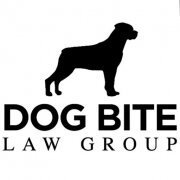Best Antitrust Litigation Lawyers in Irvine
Share your needs with us, get contacted by law firms.
Free. Takes 2 min.
List of the best lawyers in Irvine, United States
About Antitrust Litigation Law in Irvine, United States
Antitrust litigation covers disputes that arise when businesses or individuals engage in conduct that may unfairly limit competition in the market. In Irvine, located in Orange County, California, antitrust matters are governed by both federal and state law. Federal statutes such as the Sherman Act, the Clayton Act, and the Federal Trade Commission Act set national standards against practices like price fixing, bid rigging, market allocation, monopolization, and unlawful mergers. California state statutes, including the Cartwright Act and the Unfair Competition Law, provide parallel remedies and often supplement federal enforcement.
Enforcement can come from federal agencies, state government, and private parties. Federal enforcement is led by the United States Department of Justice Antitrust Division and the Federal Trade Commission. The California Attorney General and local district attorneys can bring state claims. Private plaintiffs in Irvine can sue in state courts in Orange County or in federal court in the Central District of California. Antitrust cases are often complex, involve detailed economic analysis, and may proceed as individual suits or class actions.
Why You May Need a Lawyer
Antitrust litigation is complex and technical. You may need a lawyer if you face any of the following situations:
- You suspect price fixing, bid rigging, or market allocation among competitors that harmed your business or purchasing power.
- You are a business accused of monopolization, attempted monopolization, or engaging in exclusionary conduct.
- Your company is involved in a merger or acquisition that may raise antitrust concerns and could attract regulatory scrutiny or a suit seeking to block the transaction.
- You received an inquiry, civil investigative demand, grand jury subpoena, or other government request from the DOJ, the FTC, or the California Attorney General.
- You believe you were harmed by an anticompetitive agreement and want to pursue damages or injunctive relief, possibly as part of a class action.
- You want to pursue or respond to a civil antitrust claim involving trade associations, professional licensing rules, or supplier agreements.
Experienced antitrust lawyers can evaluate whether behavior falls under per se violations or the rule of reason, advise on defenses, manage complex discovery and expert testimony, represent clients before government agencies, and negotiate settlements or pursue trial. Antitrust cases often involve large document productions and economic experts, so early legal guidance can shape strategy and preserve rights.
Local Laws Overview
Key legal authorities relevant to antitrust matters in Irvine include federal statutes and California law:
- Federal law: The Sherman Act prohibits agreements that unreasonably restrain trade and bans monopolization. The Clayton Act addresses mergers and specific anticompetitive practices and allows private damages suits. The Federal Trade Commission Act prohibits unfair methods of competition and empowers the FTC to seek relief.
- California law: The Cartwright Act is California's primary antitrust statute and closely parallels the Sherman Act; it provides for civil enforcement and damages. The California Unfair Competition Law provides a broader remedy for unfair business practices and can be used to pursue injunctive relief and restitution. California law can be used alongside federal law to seek remedies in state courts.
- Enforcement and venue: Antitrust enforcement in Irvine can occur in the federal courts of the Central District of California or in state courts in Orange County. Federal agencies like the DOJ Antitrust Division and the FTC may conduct investigations and litigate major cases. The California Attorney General and local prosecutors can bring state antitrust cases.
- Remedies: Remedies can include injunctive relief to stop anticompetitive conduct, divestiture or restructuring in merger cases, and damages to compensate victims. In many antitrust cases, successful plaintiffs may recover treble damages under federal law and comparable remedies under California law, along with attorneys' fees in certain situations.
- Practical considerations: Antitrust cases commonly involve economic experts to analyze market definition, market power, and competitive effects. Discovery is often extensive and can include emails, contracts, pricing data, and internal analyses. Parties should preserve documents and avoid actions that could be interpreted as destroying evidence.
Frequently Asked Questions
What is the difference between a per se violation and the rule of reason?
Per se violations are practices that courts treat as automatically illegal because they almost always harm competition, such as price fixing, bid rigging, and market division among competitors. Under the rule of reason, courts evaluate the full context of the conduct, weighing procompetitive justifications against anticompetitive effects. Whether a practice is judged per se or by the rule of reason affects how plaintiffs must prove their case and what defenses are available.
Who enforces antitrust laws in Irvine?
Enforcement can come from federal agencies, state officials, and private parties. The United States Department of Justice Antitrust Division and the Federal Trade Commission lead federal enforcement. The California Attorney General and, in certain cases, local district attorneys enforce state antitrust laws. Private plaintiffs can file civil suits in state or federal court to recover damages or seek injunctive relief.
Can an individual recover damages for antitrust violations?
Yes. Individuals and businesses that suffer antitrust injury can sue for damages. Federal law allows private damages actions, and California law provides similar remedies. In many cases, successful plaintiffs may be eligible for trebled damages, which means damages can be tripled as a penalty and deterrent. Class actions are common when many consumers or businesses are affected.
How long do I have to file an antitrust claim?
Time limits vary by claim and jurisdiction, but many federal antitrust claims have a statute of limitations commonly counted in years from when the injury was discovered. There are rules about accrual, tolling, and fraudulent concealment that can extend or shorten filing deadlines. Because timing can be complex, consult an attorney promptly to preserve your rights.
What remedies are available in antitrust cases?
Remedies include injunctive relief to stop anticompetitive behavior, monetary damages to compensate for losses, trebled damages in some cases, restitution, and sometimes attorneys' fees. In merger cases, courts or agencies may order divestitures or behavioral remedies to restore competition. The specific relief depends on the laws invoked and the facts of the case.
What should I do if I receive a subpoena or government inquiry?
If you receive a subpoena, civil investigative demand, or request from a government agency, contact an experienced antitrust lawyer immediately. Do not destroy or alter documents, and preserve relevant materials. Counsel can help you respond appropriately, assert necessary privileges, and negotiate the scope of requests. Early cooperation and counsel can reduce risks and protect legal rights.
Can businesses use a leniency or amnesty program?
Yes. The DOJ Antitrust Division operates a Corporate Leniency Program that may grant immunity from criminal prosecution to the first qualifying company that fully cooperates with an investigation into criminal antitrust conspiracies, under specific conditions. Companies facing potential criminal liability should consult antitrust counsel quickly to evaluate eligibility and coordinate with prosecutors.
How expensive and time-consuming are antitrust cases?
Antitrust litigation is often lengthy and costly due to extensive discovery, complex economic analysis, and expert testimony. Cases can take years to resolve, especially if they involve class certification, complex markets, or appeals. Many disputes settle before trial, but settlement negotiations also involve assessment of significant potential exposure and costs. An attorney can help estimate timelines and costs based on case specifics.
Can antitrust claims be brought as class actions in Irvine?
Yes. When many consumers or businesses suffer similar harm from the same conduct, plaintiffs often seek to proceed as a class action in state or federal court. Class certification requires meeting legal standards showing common issues, typicality, adequacy of representation, and predominance of common questions. Class actions can increase leverage for plaintiffs and streamline litigation, but they also involve special procedures and considerations.
How do I choose the right antitrust attorney?
Look for experienced counsel who handle antitrust matters in California and federal courts, ideally with trial experience and familiarity with economic expert witnesses. Ask about prior cases, outcomes, understanding of your industry, fee structures, and how the firm handles complex document discovery and expert analysis. Local familiarity with the Central District of California and Orange County practice can be helpful. Schedule an initial consultation to discuss strategy and next steps.
Additional Resources
Helpful resources and authorities for antitrust issues include federal and state enforcement agencies, professional associations, and local bar organizations. Relevant bodies include the United States Department of Justice Antitrust Division and the Federal Trade Commission, which publish guidance and announce enforcement actions. The California Attorney General's Office handles state-level antitrust enforcement. Professional organizations like the American Bar Association Antitrust Section and state bar committees provide practitioner resources and educational materials. Local bar associations, such as the Orange County Bar Association, can help locate qualified antitrust counsel and continuing legal education.
Additional useful resources include court rules for the Central District of California and Orange County superior court practice guides, academic and practitioner treatises on antitrust law, and economic research centers that publish market studies and analyses. When seeking help, consider contacting firms or lawyers with antitrust and competition law experience who can explain these resources and how they apply to your case.
Next Steps
If you believe you have an antitrust issue or have been contacted by authorities, consider the following steps:
- Preserve evidence. Stop any routine deletion of emails, documents, or data that may be relevant. Implement a litigation hold and document preservation process with legal counsel.
- Seek counsel early. Contact an antitrust attorney experienced in federal and California law for an initial assessment of your situation and potential claims or defenses.
- Gather information. Compile contracts, communications, pricing records, bidding documents, and any evidence of the conduct in question. Your lawyer will advise what is most relevant.
- Be cautious with communications. Avoid informal admissions or discussions about potential anticompetitive conduct. Let counsel handle communications with regulators and opposing parties.
- Evaluate options. Discuss whether a private lawsuit, cooperation with a government investigation, negotiation, or alternative dispute resolution is appropriate for your situation.
Antitrust issues can have significant legal and business consequences. Early, practical legal help tailored to your facts will improve your ability to protect rights, limit exposure, and pursue appropriate remedies. If you are in Irvine or Orange County, reach out to qualified local antitrust counsel to get a confidential evaluation of your matter.
Lawzana helps you find the best lawyers and law firms in Irvine through a curated and pre-screened list of qualified legal professionals. Our platform offers rankings and detailed profiles of attorneys and law firms, allowing you to compare based on practice areas, including Antitrust Litigation, experience, and client feedback.
Each profile includes a description of the firm's areas of practice, client reviews, team members and partners, year of establishment, spoken languages, office locations, contact information, social media presence, and any published articles or resources. Most firms on our platform speak English and are experienced in both local and international legal matters.
Get a quote from top-rated law firms in Irvine, United States — quickly, securely, and without unnecessary hassle.
Disclaimer:
The information provided on this page is for general informational purposes only and does not constitute legal advice. While we strive to ensure the accuracy and relevance of the content, legal information may change over time, and interpretations of the law can vary. You should always consult with a qualified legal professional for advice specific to your situation.
We disclaim all liability for actions taken or not taken based on the content of this page. If you believe any information is incorrect or outdated, please contact us, and we will review and update it where appropriate.











